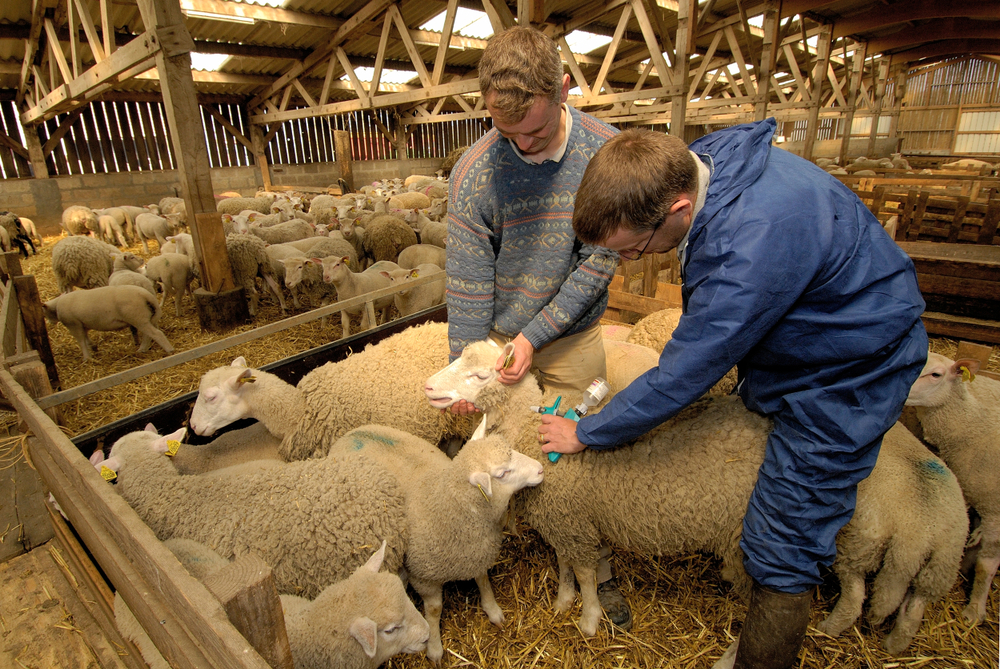Coughs, colds and costly outbreaks … Andrew Livingston asks if government delays and IT blunders are leaving farmers vulnerable

It’s that time of year, and the coughs and colds have begun, accompanied by the inevitable sore throats and runny noses. The weather is milder than usual, and the germs are having a free-for-all.
For animals, it’s the same. Seasons bring viruses and illness, leading to the use of antibiotics and, in some cases, resulting in death.
In August, Bluetongue – a disease that affects ruminants like cows and sheep, but not humans, and doesn’t pose a risk to public health or food safety – was detected in Norfolk, after infected midges blew over from mainland Europe. Cases have spread across the country, leading to the shut-down of annual countryside shows and restrictions on animal movements from infected areas. Cattle and sheep breeders have been hit hard, forced to keep animals beyond their sale age. Breeders are now incurring costs to feed and protect animals that should have been sold and moved on to their new pastures.
What’s frustrating for the agricultural community is the fact that government vets from the Animal and Plant Health Association expected this to be the case … but failed to take action. The Bluetongue vaccine is only being distributed after an outbreak, which doesn’t stop animals from getting sick – it merely helps prevent death.
A swift vaccine rollout across the east coast and south west could have saved animal lives and maintained the continuity of animal movements.
Computer says no
The arrival of colder weather also means migrating birds, and with that, the now annual risk of returning Avian Influenza (AI). Last year was a quiet year for the disease after the record-breaking decimation of flocks during the winter of 2022/23.
Preparing for the worst, DEFRA has called on every single bird owner in the country to register as keepers in their national database. If you even take your pet budgie for a walk outside at any point now, they need to know about it. Failure to do so can lead to a £2,500 fine.
In true governmental fashion, however, small backyard flocks were threatened with fines from the 1st of October for non-compliance but, hilariously, no one has been able to sign up, due to IT issues with the registration process.
Let’s not mention the eggs
As a final addendum in another bleak month of column writing, I ought to inform The BV’s readers of issues that may lay ahead. Shocker, I know, that the future picture isn’t rosy: certainly not for egg producers, at least.
I’ve been hearing murmurs about Ireland struggling with egg production from an unknown virus. Most reports say birds haven’t been dying, but what’s scary is that the vets are completely unable to say what it is, or what’s causing it.
I don’t believe in scaremongering – this is no bats-being-eaten-in-the-Wuhan-market story! Nevertheless, whatever it is, it’s spreading. A lot of farms around Wales are now reporting a drop in their egg production, resembling closely the tales from across the Irish Sea.
Nationally, we can cope with mini dips in production. What we can’t have is a repeat of the AI season of two years ago, where large proportions of the nation’s bird population were wiped out in months. Thankfully, birds aren’t dying at the moment … but I can’t stress enough how smart, sophisticated and adaptable pathogens are. They’ve survived a lot longer than we have on this planet. Thinking about it, we can’t even create an online form that works … we haven’t got a hope in hell, have we?